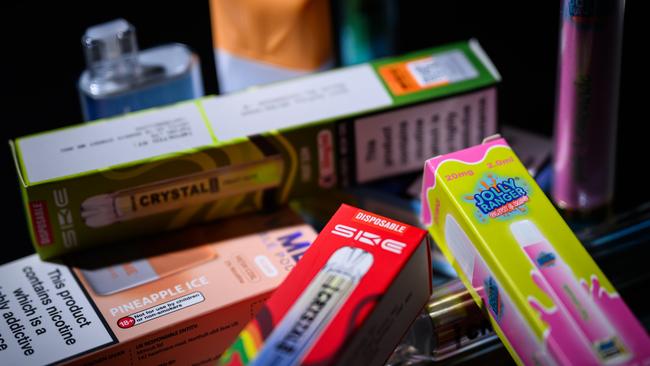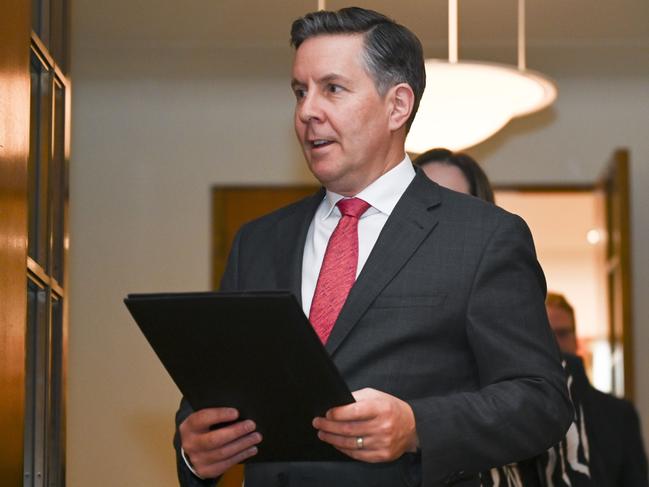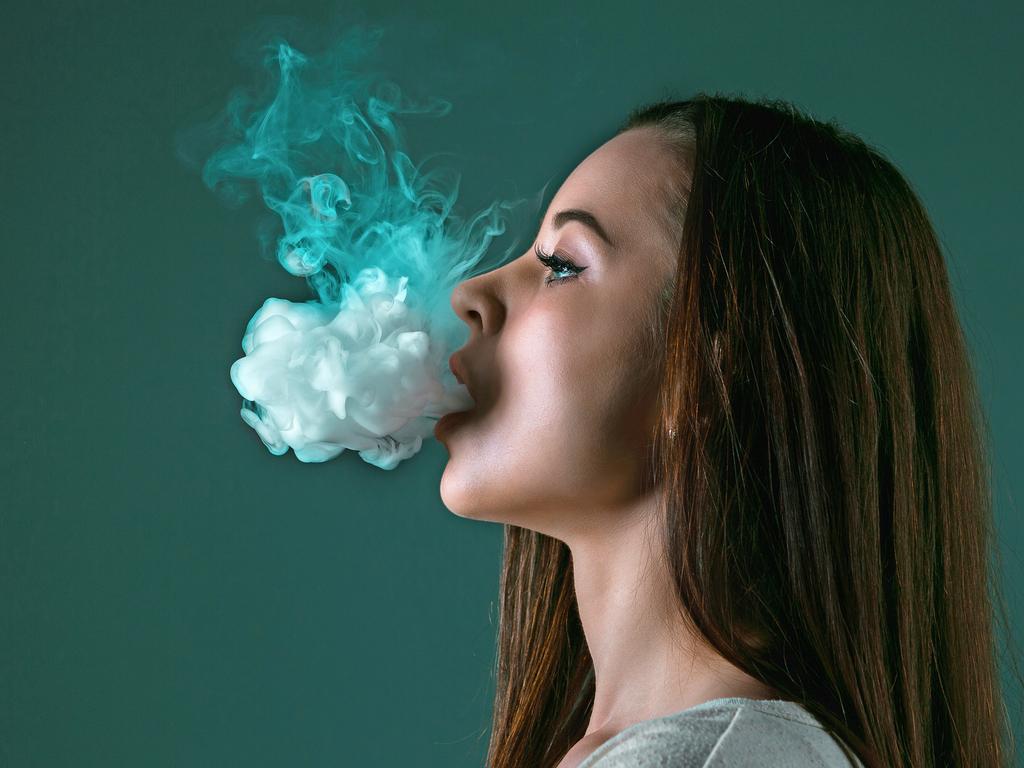The ‘tax and regulate’ approach to drive down vaping rates has failed in New York
Arguments that slapping an excise tax on vapes raises billions in revenue and reduces nicotine use have been debunked by overseas analysis as Australia prepares to pass world-first vaping ban laws.

Arguments that slapping an excise tax on vapes raises billions in revenue and reduces nicotine use have been debunked by analysis that reveals overseas jurisdictions that have taken a “tax and regulate” approach have collected relatively little in sales tax even as vaping rates soar.
The final and most important tranche of federal Health Minister Mark Butler’s ambitious vaping legislation, that bans the sale of vapes at shop counters, will be debated in the Senate this week, with the legislation looking likely to pass with key amendments.
The Nationals have been trenchantly opposed to a prohibitionist stance on vapes, but analysis of jurisdictions that have followed the Nationals’ preferred “tax and regulate” approach suggests such a policy may equally incentivise black-market trading in vapes.
New York State’s revenue from its 20 per cent tax on e-cigarettes only amounted to $25m last financial year despite a population of 20 million of which one million are vapers, according to a research report prepared for the New York State Health Department.
The Nationals, who accepted many millions in donations from tobacco companies last year, have put forward research claiming $1.8 billion a year could be collected in Australia if the vaping market was regulated and e-cigarettes were subject to excise tax. The Liberals’ position on vaping has been unclear and frequently shifting.

But Mr Butler said the costs would far outweigh the revenue, with health harms from tobacco costing the nation as much as $136 billion a year.
“The billions that Big Tobacco lobbyists say can be raised (through taxing vapes) might be nothing more than vapour – just smoke and mirrors to hide the fact that they just want to lure another generation into nicotine dependence, so that they can make record profits at the expense of our kids,” Mr Butler said. “If vaping turns out to be anything like smoking, the costs will far outweigh any revenue that might be raised.”
Medical and health policy experts estimate the cost to the nation of the health harms associated with nicotine addiction are at least double what is collected in excise tax on tobacco products.
Australia is pursing a unique approach to vaping regulation, with legislation having already passed to ban the import of e-cigarettes, and the bill before the Senate set to ban their sales anywhere but pharmacies. It’s understood Labor will make key concessions to the Greens around personal criminalisation and pharmacy access to get vaping legislation passed this week with its substantial aspects intact.
In December 2019, New York State began a “tax and regulate” scheme for vapes. The state government took vapes out of pharmacies, put a 20 per cent sales tax on all vaping products sold in retail settings, and imposed age restrictions to prevent anyone under 21 buying a vape. In 2020, its first year of operation, its vaping tax raised $35.9m, much less than expected.






To join the conversation, please log in. Don't have an account? Register
Join the conversation, you are commenting as Logout